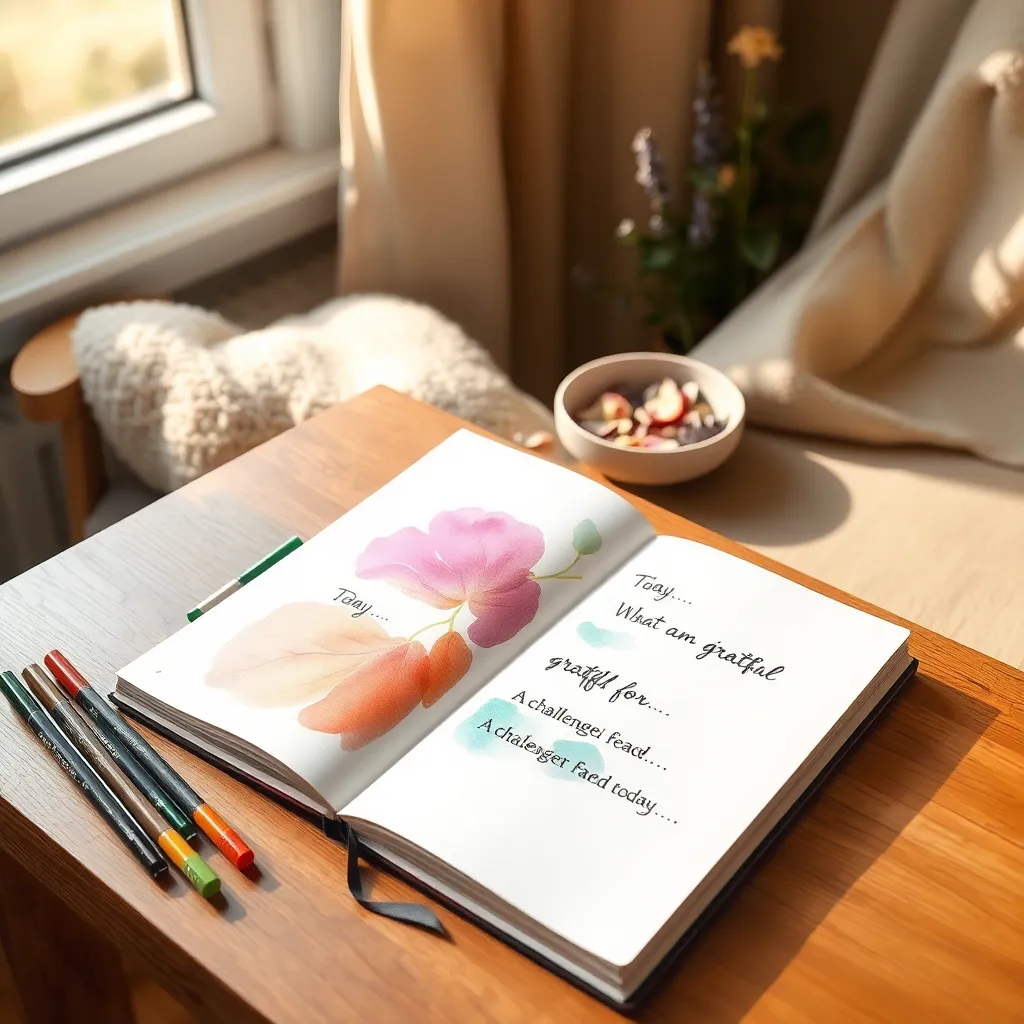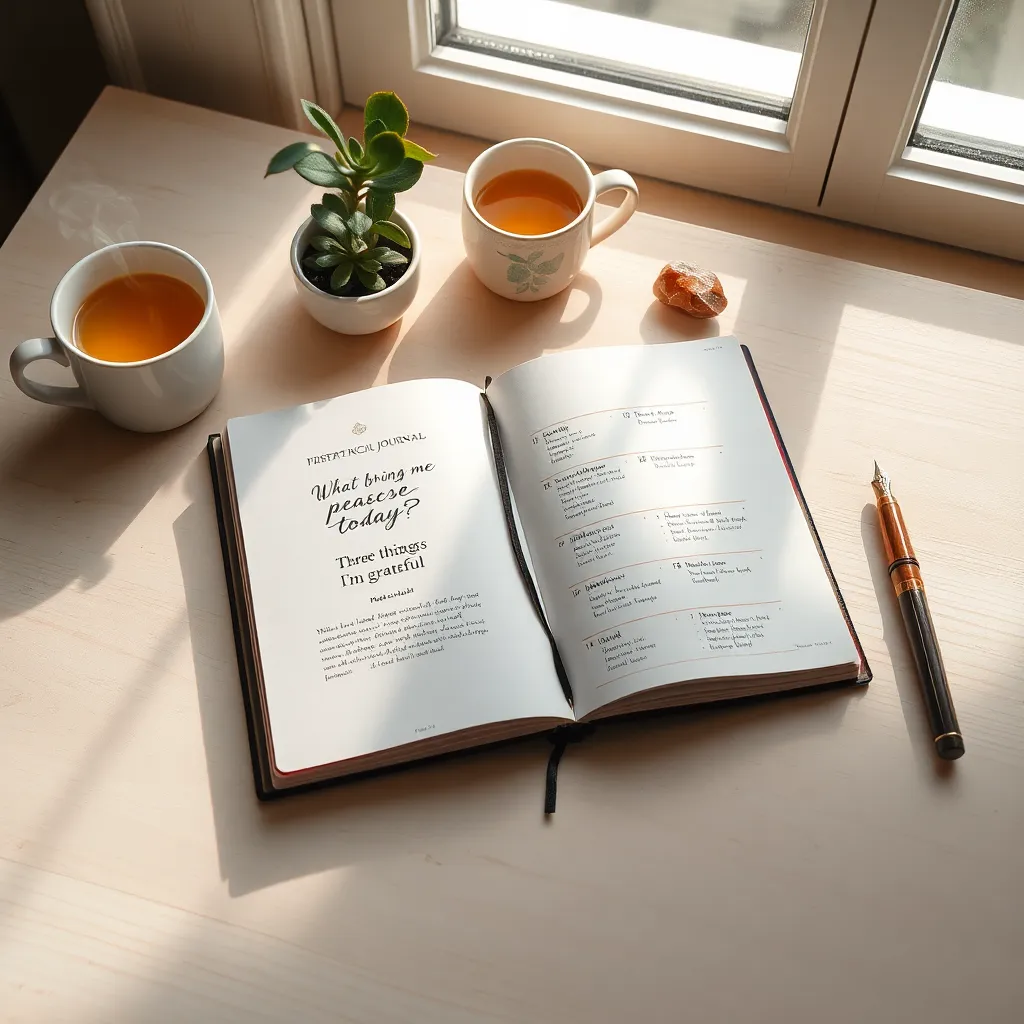In our fast-paced lives, finding emotional wellness and peace can feel elusive. Journaling offers a simple, effective way to explore thoughts, release stress, and nurture mental clarity.
Embrace this practice to unlock a serene mindset. Through journaling, discover insights and foster a deeper connection with yourself, paving the path to lasting inner calm.
Understanding Emotional Journaling Basics

Begin your emotional journaling by embracing the power of free writing. Allow your thoughts to flow without judgment.
- Prompt: “Describe your current feelings without censoring.”
Another effective technique is using gratitude lists to shift focus. Each day, jot down a few things you’re thankful for.
- Prompt: “What are three things that made you smile today?”
Techniques for Inner Peace Writing

Begin by setting a timer for 5 minutes. Write freely about whatever comes to mind, focusing on releasing tension. This practice, known as stream of consciousness, helps uncover hidden emotions.
Another powerful technique is the gratitude prompt. Each day, jot down 3 things you’re thankful for. This simple shift in focus cultivates appreciation and inner calm.
Guided Prompts for Emotional Clarity

Begin your journaling with a focus on emotional clarity. Try the prompt: “What emotions am I feeling right now, and why?” This encourages immediate self-awareness and understanding.
To deepen your insight, explore another prompt: “What can I do to nurture these feelings or gently let them go?” Reflecting on this helps in processing and moving forward with compassion.
Transformative Effects of Daily Journaling

Journaling daily can be transformative by fostering emotional awareness. Start with a simple prompt like, “What am I feeling right now?” This encourages you to explore emotions without judgment.
Another effective technique is to list three things you’re grateful for each day. This practice shifts focus to positivity, enhancing emotional wellness and peace.
Building Consistency for Lasting Peace

Consistency in journaling creates a foundation for lasting peace. Start with 5-minute entries daily, focusing on gratitude or a single emotion. This simple habit builds a calming ritual.
Utilize specific prompts to maintain momentum:
- “Today, I feel…”
- “I am grateful for…”
These prompts cultivate mindfulness and emotional clarity, fostering inner tranquility.
Conclusion: Creating Beautiful Outdoor Spaces
In exploring the transformative power of journaling for emotional wellness and peace, we’ve delved into five key relationship concepts: self-awareness, empathy, communication, conflict resolution, and emotional regulation. By journaling, you can cultivate self-awareness, understanding your emotions and how they impact your relationships. Empathy grows as you reflect on others’ perspectives, fostering deeper connections. Enhanced communication emerges from articulating thoughts and feelings, while conflict resolution benefits from the clarity and insight journaling provides. Finally, emotional regulation becomes attainable as you process emotions constructively, reducing stress and enhancing relational harmony.
As your actionable next step, consider setting aside just ten minutes a day to start your journaling practice. Reflect on your relationships, jot down your thoughts, and observe the positive shifts in your interactions.
To ensure these insights remain at your fingertips, save or bookmark this article. It can serve as a valuable resource as you continue to nurture and strengthen your relationships.
Remember, the path to relationship success is a journey, not a destination. With journaling as your companion, embrace the opportunity to build more meaningful and resilient connections. Your relational future is bright, and you have the tools to shape it.

